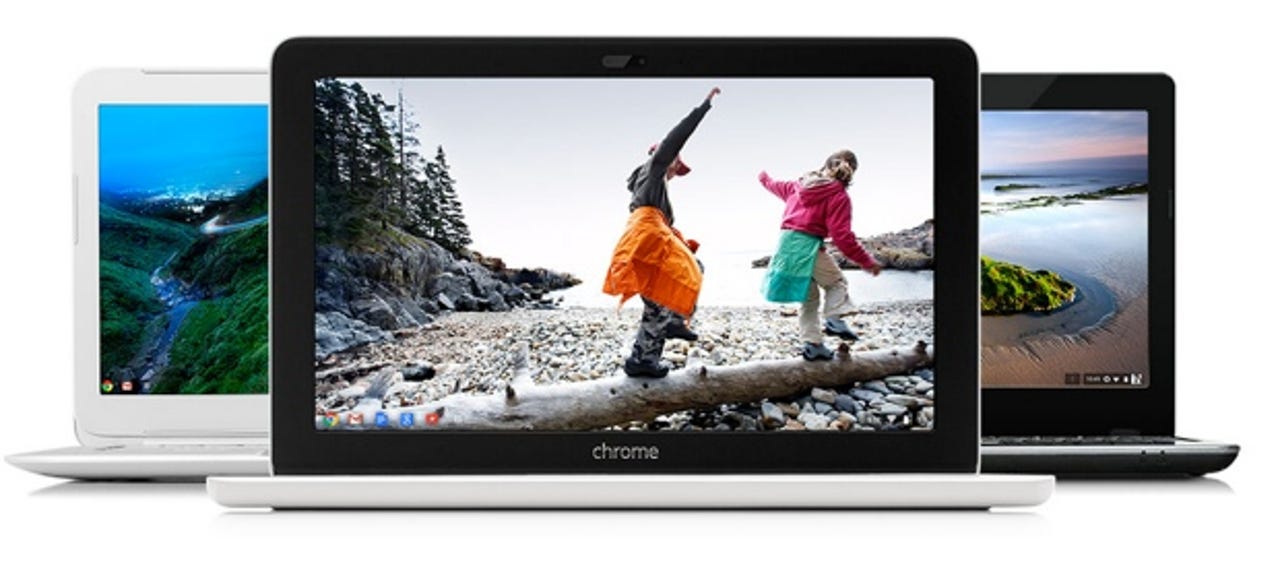Microsoft is missing the point with Chromebooks

Microsoft has launched a new attack on Google. The latest assault, which is part of a broader campaign called Scroogled, is aimed at discrediting the Chromebook platform by pointing out how consumers should be "leery" of the platform because of a list of "cons" and "can't" that Microsoft has pulled together.

Problem is, rather than causing me to question Chromebooks, what the Scroogled campaign tells me is that Microsoft is actually scared of Chromebooks, and instead of addressing the needs of consumers, Google has brought the Redmond giant to the point of panic with Chromebooks ahead of the holiday spending extravaganza. By choosing to go on the offensive against the Chromebook, Microsoft has inadvertently given validation to a platform that most mainstream buyers – the sort of people looking for a computer over the next few weeks – would never have noticed.
Featured
Let me begin by saying that I'm not a Chromebook user. I don't need one, and I'm certain that it wouldn't fit in with my lifestyle. But that said, I don't understand the hate that these devices seem to attract from certain quarters. It's almost as if a truck packed with Chromebooks crashed into a hotel full of kittens.
At the end of the day it's just another device (in an already crowded market) seeking attention. And the fact is that for certain users, Chromebooks are everything they need from a portable system.
To Microsoft's credit, it does raise some valid concerns relating to Chromebooks. The lack of rich local apps such as Office and Skype might be a problem for some, and for others the fact that Chromebooks are designed primarily be always-online might be a deal-breaker. Then there's the issue of Google trawling through emails and chats for specific keywords in order to target the user with ads which some might find unpalatable.
The problem for me is that these genuine points are lost in what otherwise comes across as a bitter negative campaign. I watched the latest ad and I found the language and overall tone patronizing and denigrating.
But the negative tone aside, I think that Microsoft is missing the point. All the talk of how Chromebooks lack rich apps such as Skype and Office overlooks the headache that such applications are to some. My mother-in-law is in her 80s and had to transition from a PC because she relied on the web to communicate with the outside world, and the PC had become too unreliable. She moved to an iPad, but I could equally see her at home with a Chromebook.
Microsoft's point about Chromebooks needing a constant connection to the Internet overlooks the fact that for some a constant connection to the web is a must anyway, and that their devices spend their entire life within reach of a Wi-Fi connection.
Also, it's true that Chromebooks don't come with CD/DVD drives, but then neither do tablets like the iPad over even Microsoft's own Surface devices. My high-end MacBook Pro didn't come with an optical drive, and I don't find this limiting since I, along with millions of others, stream most of my content over the web.
AR + VR
I happen to agree with Microsoft that printing with a Chromebooks takes some determination, but then printing itself is dying, and people are printing off fewer and fewer documents. I honestly can't remember the last time I printed something, and I doubt I'm alone in that.
The same goes for scanning. In fact, I'm not even sure where my scanner is.
Microsoft is missing the point with Chromebooks. It's doing this because it assumes that people want a Chromebook to do today what people were doing with a PC a decade ago. I remember a time when people were printing and scanning documents enthusiastically, when they got excited about rich applications such as Office, and when being able to play CDs and DVDs on a PC was cool.
Times have changed.
People now spend much more time in the web browser nowadays, and are more concerned about malware and system crashes than they are about printing playing DVDs.
How do I know this? Because of the success of post-PC devices such as the iPad.
Another issue that Microsoft is overlooking here is that the sort of people buying Chromebooks are unlikely to be buying them to replace a PC. People I've talked to who have bought Chromebooks seem to be buying them to augment a PC. This means that when they want to print or scan or do things when their web connection is down, they can.
The PC isn't dying, it's just that people are making them last longer and spending their money on other stuff ... like Chromebooks. This clearly worries Microsoft or it wouldn't be spending money on ads "warning" people about them.
Microsoft's attack on Chromebooks is the best Christmas present Google could have asked for. Not only does it show how out of touch Microsoft is with what consumers want, but it also validates Chromebooks as a serious player.